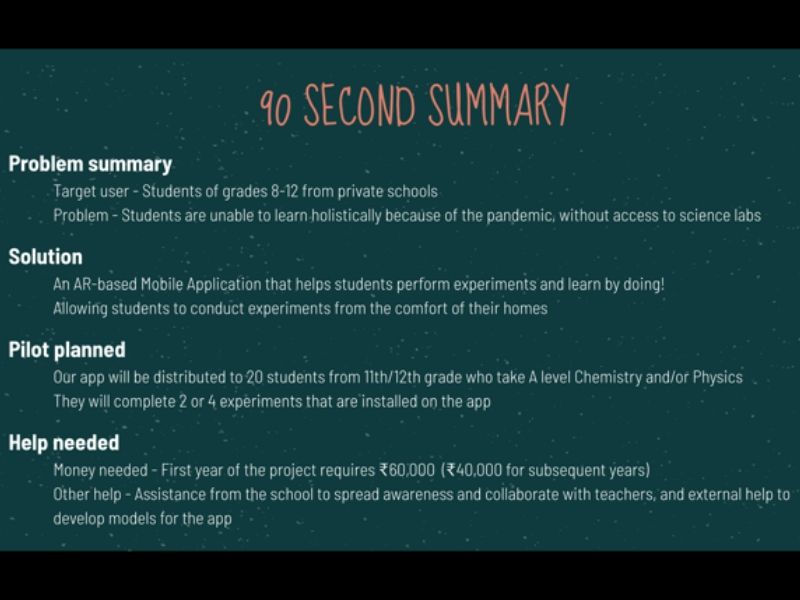With the novel coronavirus outbreak and subsequent mass closure of educational institutions driving the swift transition of learning from the brick-and-mortar classroom to digital online platforms, a handful of bright students in India are building solutions to help improve the online learning experience for each other and prepare everyone for life back in the campus after schools reopen. This is being enabled by Changemaker Challenge 2020 launched by Inventure Academy for students of grades 7 through 12 to explore options for sustainable solutions for education, and schools in particular.
The students are being encouraged to visualise what learning would be like in the age of COVID-19 and social distancing and what can an ‘ideal’ school day be like for them. Nooraine Fazal, managing trustee, CEO and co-founder of Inventure Academy says, “We believe that with challenges come opportunities, and the bigger the challenge, the more opportunity for innovation. Apart from learning to deal with the current situation, we also need to make sure that we continue to work on things that are most important for our future. This includes, for example, change maker education which enables us to learn life skills such as grit, adaptability, innovation, learning to learn, problem definition and solving, working in collaboration, digital literacy, etc. all of which can help us better handle or prevent crises like this. This crisis also provides the motivation for educators around the world to unlearn, relearn and reinvent themselves.”
The fourth edition of the challenge that started in April 2020 is being conducted online. About 107 teams participated in the challenge and 25 teams have been shortlisted on the basis of the solutions that they have put forth to reimagine education, its feasibility, plans to address the challenges and how the students have handled the feedback and answered the queries of the judges. Schools such as Lakshmipat Singhania Academy, Inventure Academy, Oakridge International School, The Indian High School, Dubai, Saandeepani Academy For Excellence and Prakriya Green Wisdom School have been shortlisted for Round 2.
Vikram Misra
For Round 2, the shortlisted teams presented several innovative ideas such as use of Augmented Reality (AR), project-based learning and voice broadcasting service for online education. Vikram Mishra, a grade 12 student of Inventure Academy along with his classmate Gaurang Bharti and friend from grade 11, Samarth Grover developed a project that they claim can help to conduct practical experiments with augmented reality. Mishra says that they learned the concept a while ago while they were looking at different solutions they can develop. “Due to the whole pandemic situation, the education especially practical examinations of high school students have been disrupted as we do have access to the school laboratories. This problem that we faced gave us some insights and helped us develop the plan to have a mobile application where students can do practical experiments with augmented reality,” he says.
Students are looking at this challenge as an opportunity to design a viable project that can address the challenges educational institutions are facing currently. “The challenge has provided a good framework and the mentors are helping us to shape our solutions better so that they are likely to succeed in the market,” says Mishra.
Aaditya Mathur
Another team of students from The British School, New Delhi have developed a plan to engage students in the online classroom. Aaditya Mathur who would be moving to grade 7 with his friends Tiger Bedi and Araan Saigal presented their product Gyaan Share for the ease of teachers to engage the students better. “We learned that many students do not focus in online classes. They play games or watch YouTube videos while the class is going on and do
The teams presented their solutions in Round 2 and will now be shortlisted for Round 3 which will include top 10 teams and three wild card entries. In Round 3, they are required to develop their prototypes through online workshop with industry experts. The teams will receive a project prototype funding of Rs 5,000 each. The judges will declare the Top 3 teams on May 27 based on their prototypes. The Top 3 teams will be given further funding of Rs 1 lakh in total for scaling and sustaining their ideas for online education.
Akhila Damodaran
